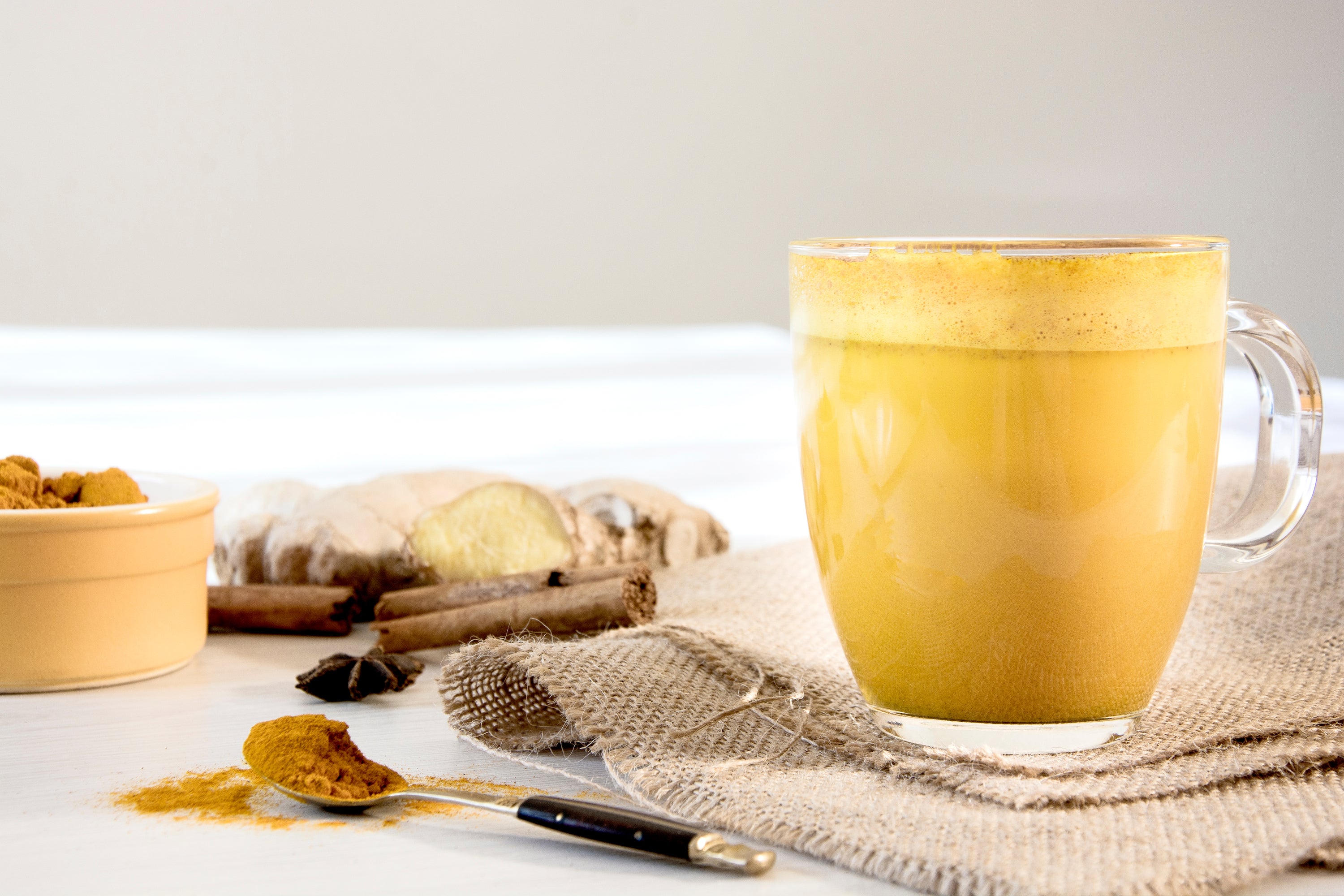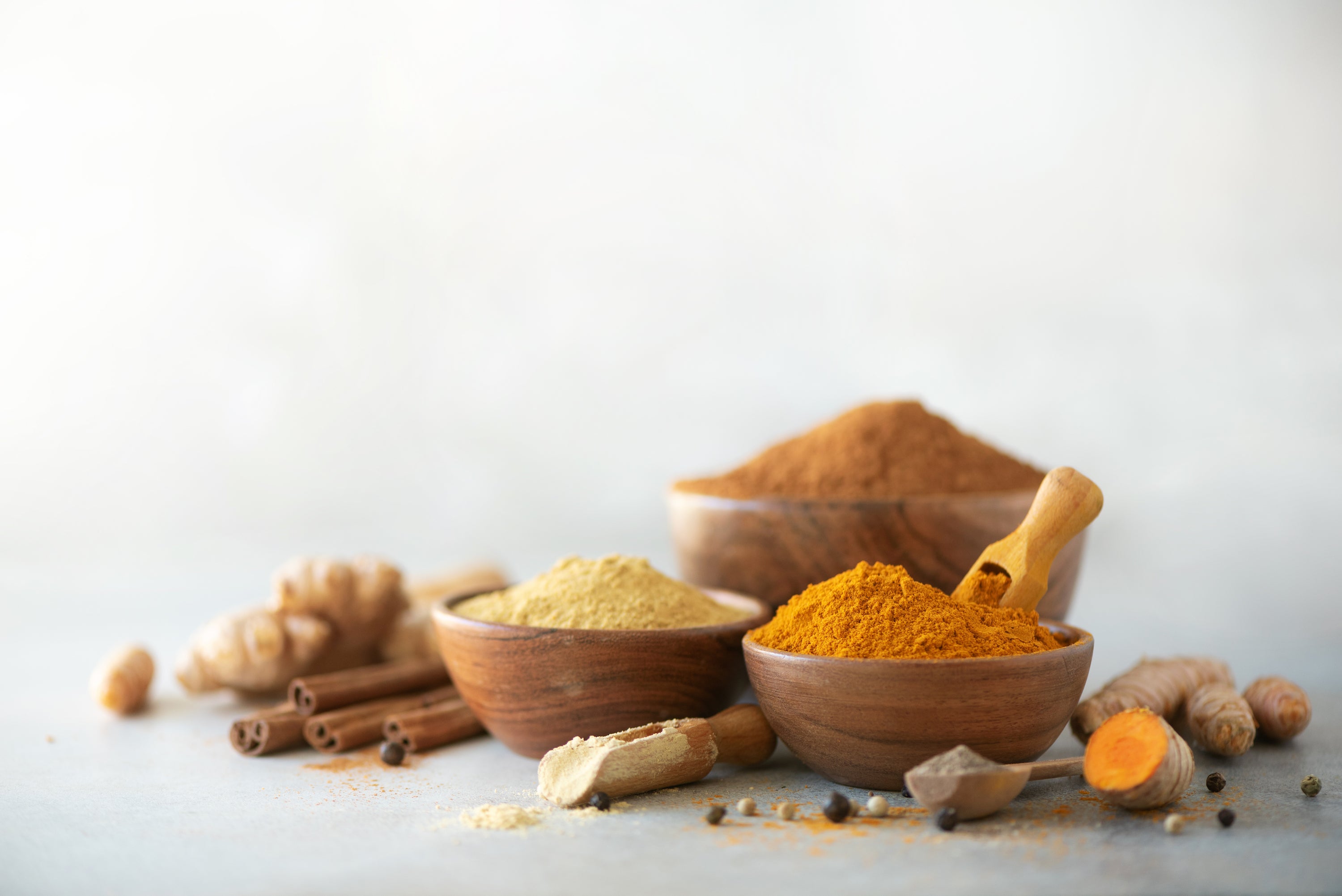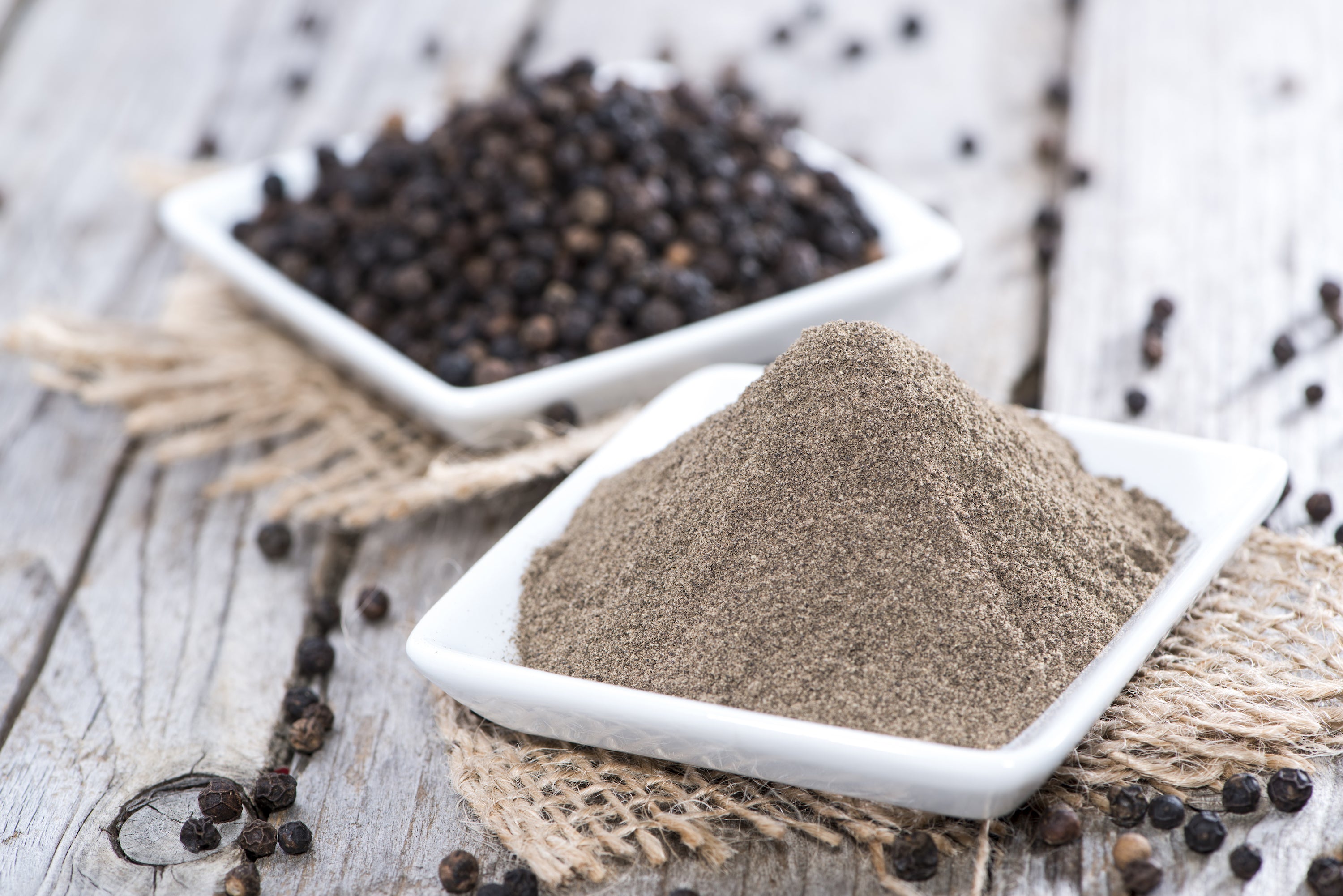It’s not just photo op-friendly: turmeric, the richly hued spice that features prominently in a variety of Indian dishes, packs a serious nutrient punch and offers a list of health benefits that seems to be getting longer by the day.
Sipping on golden lattes and adding a teaspoon of turmeric to your favorite spice blend isn’t an effective way to reap said health benefits, though, because turmeric is poorly absorbed by the body and recipes generally call for very small amounts of the spice, which has a unique earthy flavor.

For this reason, turmeric is one superfood that health practitioners and dieticians actually recommend including in your diet in supplement form, rather than as a component of meals made up of whole food. But choosing a turmeric supplement can get complicated in a hurry. If you run a search for turmeric supplements, you’ll quickly notice that the majority of options on the market are called “Turmeric Curcumin,” not just “Turmeric”; that most include a patented extract called BioPerine®️, and that many products tout the fact that they’re “standardized to 95% curcuminoids.”
You might also notice that the benefits claimed by supplement makers sound vague or even conflicting – what does “occasional joint relief” really mean, anyway, and how does it have anything to do with “cardiovascular health” and “brain function”?
That’s a lot of information to process and questions to answer. Let’s start at the beginning.
What’s the difference between turmeric and curcumin?
Turmeric is a flowering plant that belongs to the ginger family. Like ginger, its roots can be grated, juiced, blended, pickled, or dried and ground up into powder for cooking purposes. Ayurvedic medicine, a traditional Indian practice, has looked to turmeric as a treatment for ailments like inflammation and chronic pain for over 4,000 years. The root has more than 50 names in Sanskrit, and many of them speak to its believed ability to cure diseases and treat conditions like gallstones, asthma, and arthritis.1

Available in tea, powder, extract, and oil form, turmeric is also used as a dye and a coloring agent for a long list of foods, including cheese, mustard, butter, ice cream, cakes, orange juice, cereal, and sauces.1 Turmeric gets its golden orange color from compounds called curcuminoids, of which curcumin is one.
Curcumin has antioxidant properties and powerful anti-inflammatory effects. However, even though it is the primary active ingredient in turmeric, it only accounts for about 3% of the root’s total contents. This is because turmeric contains more than 100 different components! It’s for this reason that turmeric is more beneficial in supplement form than as a spice. You’d need to consume a LOT of turmeric to experience the benefits of curcumin – especially because the human body doesn’t naturally absorb turmeric well.
This leads us to our next question.
Is isolated curcumin more beneficial than whole turmeric?
Curcumin is the primary active ingredient in turmeric, but it isn’t the only one. While it does account for the majority of turmeric’s health benefits, there are other curcuminoids and compounds that provide nutrients and exert positive effects on the human body.
As an isolated substance, curcumin provides most of the benefits that whole turmeric does, but the inclusion of turmeric’s entire range of compounds enhances the effects. If you’re familiar with hemp and CBD products, you might recognize the similarity to the “entourage effect” produced by full-spectrum products – CBD is the main substance that interacts with the endocannabinoid system to reduce pain and anxiety, but other compounds help to amplify and extend these benefits.
For best results, taking a turmeric supplement with curcuminoids standardized to 95% is ideal.
Why do supplements include BioPerine®️?
Many turmeric supplements include a patented extract called BioPerine®️, which is a substance called piperine that is derived from black pepper. Studies have demonstrated piperine to improve the bioavailability of turmeric by as much as 2,000%.2 The reason for this is not yet fully understood, but science suggests that piperine facilitates the transportation of curcumin through the intestinal wall and into the bloodstream.

Other findings support the theory that piperine inhibits the breakdown of curcumin in the liver, increasing the amount of time curcumin remains in the bloodstream and allowing for greater absorption.3
Because curcumin is fat soluble, taking a turmeric supplement in conjunction with a meal that contains a healthy source of fat will also promote absorption for greater benefits.
So now we know how to derive the greatest positive effects from curcumin. But just what ARE the benefits of this compound, anyway?
6 reasons curcumin belongs in your supplement stack
Practitioners of Ayurvedic medicine have extolled the benefits of turmeric for thousands of years, but modern science is only just starting to catch up. Some positive effects of turmeric and the curcumin it contains have been clinically proven, while others require much more extensive research before they can conclusively be stated as benefits.
Unsubstantiated claims aside, turmeric and the curcumin it contains have rightfully earned their superfood status. Here are just a few of the remarkable positive effects they offer for human health.
1. Joint benefits
Chronic inflammation is possibly the greatest contributor to the diseases that plague our society today, including diabetes, arthritis, neurodegenerative diseases, and even cancer.4 A 2004 study reported that curcumin may offer greater relief from joint inflammation and aggravation than aspirin and ibuprofen, given its antioxidant properties and its ability to inhibit certain factors that influence the production of inflammation markers.5

In a 2012 study on people who suffer from rheumatoid arthritis, researchers concluded that “curcumin has activities similar to anti-TNF drugs, but without their serious side effects.” They observed that curcumin produced positive effects on RA symptoms and showed promise for the management of other chronic conditions.6
2. Heart health benefits
As the top cause of death in the world, heart disease has been studied for decades as doctors and scientists attempt to understand its causes and ways to prevent it. Dysfunction of the endothelium, or the lining of the blood vessels, is a major contributor to heart disease. It can destabilize blood pressure and cause blood clotting irregularities, among other negative effects. Curcumin promotes the proper function of the endothelium and may even help to reverse the progression of factors that contribute to heart disease.7
3. Digestive benefits
Throughout Asia, turmeric has been used in traditional medicinal practice to relieve digestive discomfort and symptoms of conditions including IBS. It’s thought to discourage gas and bloating and promote bile production in the liver for the improved digestion of fats.1 Scientists have not yet confirmed these benefits, but turmeric’s antioxidant and anti-inflammatory properties likely have a positive effect on digestion and may help to prevent conditions like leaky gut syndrome.8
4. Brain function benefits
Brain-derived neurotrophic factor, or BDNF, plays a key role in the formation of new connections between neurons as well as the replication of neurons themselves. Studies conducted on mice show that curcumin can restore levels of BDNF depleted by stress, which could help to delay or prevent the onset of degenerative diseases like Alzheimer’s and Parkinson’s. It may also positively influence the hypothalamic-pituitary-adrenal (HPA) axis to help alleviate symptoms of depression.9 More studies are needed to determine curcumin’s full potential for brain support, but the existing research is promising!7
5. Benefits for diabetics and weight loss
Turmeric supplementation may reduce blood sugar levels and oxidative stress, improve insulin resistance, and support balanced cholesterol levels to help prevent the development of diabetes and support the reduction of complications associated with the disease.10 By interrupting inflammation processes and supporting balanced hormone levels, turmeric may discourage obesity and weight regain after dieting, promoting fat loss and insulin sensitivity.11
6. Skin health and aging benefits
In addition to counteracting the activity of free radicals, which can damage cells and cause premature aging, curcumin also reduces chronic inflammation and may interfere with the replication of melanoma cells, prevent psoriasis flare-ups, help to manage scleroderma, regulate the production of sebum for acne control, and even protect melanin-producing cells to promote repigmentation for vitiligo treatment.12,13

And that’s not all of the beneficial properties turmeric possesses. It’s also antifungal, antibacterial, antiviral, and antimicrobial, and has been used in traditional medicine to encourage proper wound healing and treat respiratory conditions. Various studies have reported malignant cell-inhibiting activity and tumor growth suppression. When it comes to the health benefits of turmeric, modern science is only just beginning to scratch the surface.1
J
*These statements have not been evaluated by the FDA. These products are not intended to diagnose, treat, cure, or prevent any disease.
SOURCES
- https://www.ncbi.nlm.nih.gov/books/NBK92752/
- https://www.ncbi.nlm.nih.gov/pmc/articles/PMC3535097/
- https://www.healthline.com/nutrition/turmeric-and-black-pepper
- https://www.thriveglobal.com/stories/the-curcumin-miracle-a-panacea-for-every-disease/
- https://www.pubmed.ncbi.nlm.nih.gov/15489888/
- https://www.rheumaterx.com/assets/pdfs/cs-curcumin.pdf
- https://www.healthline.com/nutrition/top-10-evidence-based-health-benefits-of-turmeric/
- https://www.medicalnewstoday.com/articles/306981
- https://www.sciencedirect.com/science/article/abs/pii/S0006899306027144
- https://www.everydayhealth.com/diet-nutrition/diet/turmeric-curcumin-benefits-side-effects-types-more
- https://www.healthline.com/nutrition/turmeric-benefits-weight-loss
- https://www.medicalnewstoday.com/articles/319553
- https://www.ncbi.nlm.nih.gov/pmc/articles/PMC5816300/
- https://pubmed.ncbi.nlm.nih.gov/25847554/
